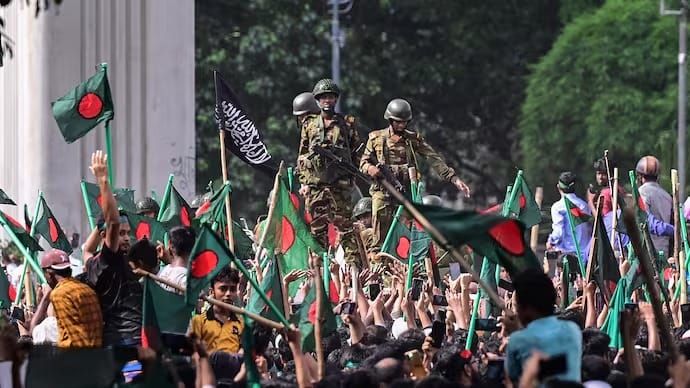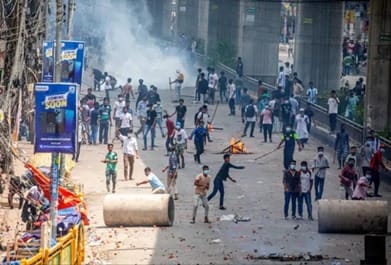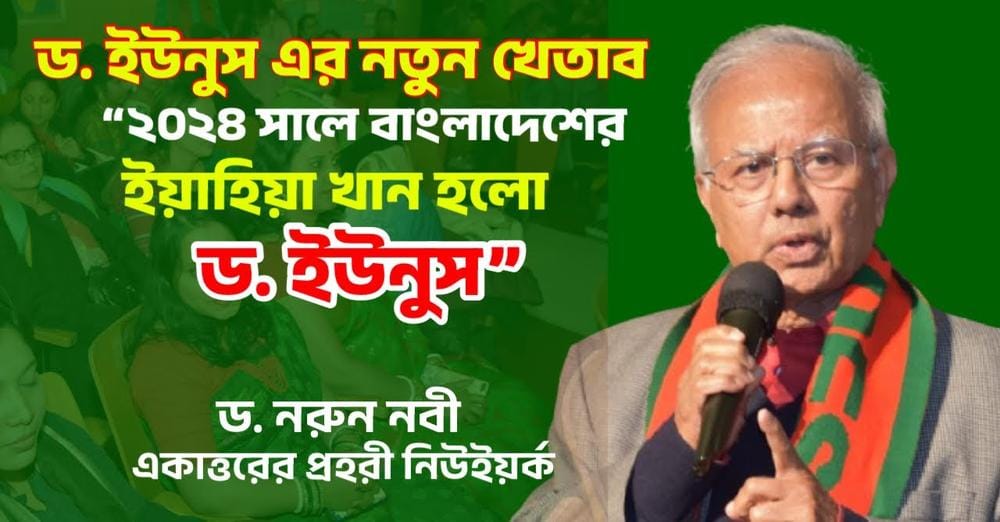Resisting Extremism in Bangladesh: Reflections from the 2024 Protests
The current protesters in Bangladesh in 2024 have indeed brought out the deeper undercurrent of social discontent that has its roots in political unrest, issues related to economy, and governance.

The current protesters in Bangladesh in 2024 have indeed brought out the deeper undercurrent of social discontent that has its roots in political unrest, issues related to economy, and governance. These twin factors have now merged together and make the emergence of threats from the likes of ISIS and Jamaat-e-Islami more and more pronounced. Such outfits usually try to take advantage of civil uprisings to enact their agendas, which in turn make a comprehensive strategy a need of the hour to safeguard Bangladesh’s democratic fabric and its cultural identity.
The protests that erupted across Bangladesh in 2024 highlight a growing societal discontent linked to political instability, economic hardship, and a deepening mistrust in governance. Amid this unrest, the threats posed by extremist groups like ISIS and Jamaat-e-Islami become even more pressing. These organisations are adept at capitalising on civil turmoil, making it essential for Bangladesh to adopt a multifaceted approach to protect its democratic values and cultural integrity.
As citizens rallied for political reform and accountability, the risk of radicalization increased, particularly among youth feeling marginalised by the system. Extremist groups often present themselves as alternative voices during such times of unrest, further complicating the socio-political landscape. This calls for immediate action from the government and civil society to address the underlying issues fueling discontent, thus diminishing the appeal of extremist ideologies.
Many thousands of citizens nationwide had to come out in the streets demanding political reform, indicating frustration with the current political landscape is fertile grounds for radical ideologies. Extremist groups thrive on chaos and often present themselves as alternative solutions against government failures that society perceives. Such turbulent times also will find vulnerable minds attracted to the violent deeds of ISIS and the radical narratives of Jamaat, especially in the case of disempowered youth. Therefore, it is pertinent that the government and civil society do everything possible to mend the cracks in the system that have sent people into disillusioned discontent.
A strong response, therefore, to the concomitant problem of extremism and civil unrest must involve efforts at building a resilient civil society. This will encompass not only law enforcement and intelligence strength to prevent acts of terror but social cohesion in community-related engagement. Such programs would foster critical thinking and tolerance and facilitate interfaith dialogue, all essentials for equipping the young to resist such narratives. Such economic empowerment programs help assuage the conditions that make people prone to recruitment by such radical groups-to secure citizens see a good future for themselves in a peaceful, democratic Bangladesh.
A comprehensive strategy to combat both extremism and civil unrest should prioritise strengthening civil society. This includes enhancing law enforcement and intelligence capabilities to preemptively counter terrorist threats while fostering community resilience through engagement and education. Promoting critical thinking, tolerance, and interfaith dialogue within educational frameworks can help shield young people from radical narratives. Additionally, implementing economic empowerment initiatives can address the conditions that foster susceptibility to recruitment by extremist groups.
The protests of 2024 mark a turning point for Bangladesh in reaffirming its commitment to secularism and inclusivity. As citizens demand accountability for their leaders, it is also a call to champion values that form the foundation of the nation’s identity. Combating the allure of extremist ideologies would require multidimensional efforts involving the government, civil society, and international partners. Only by giving prominence to dialogue, transparency, and development could Bangladesh emerge stronger from the present situation as a committed part of a peaceful and democratic future while fully on its guard against the evils of ISIS as well as Jamaat.
The 2024 protests represent a critical juncture for Bangladesh to reaffirm its dedication to secularism and inclusivity. As citizens demand greater accountability from their leaders, they must also advocate for the values that define their national identity. By fostering open dialogue, transparency, and socio-economic development, Bangladesh can navigate its current challenges and build a more resilient society—one that effectively counters the influence of ISIS and Jamaat while ensuring a peaceful and democratic future.



